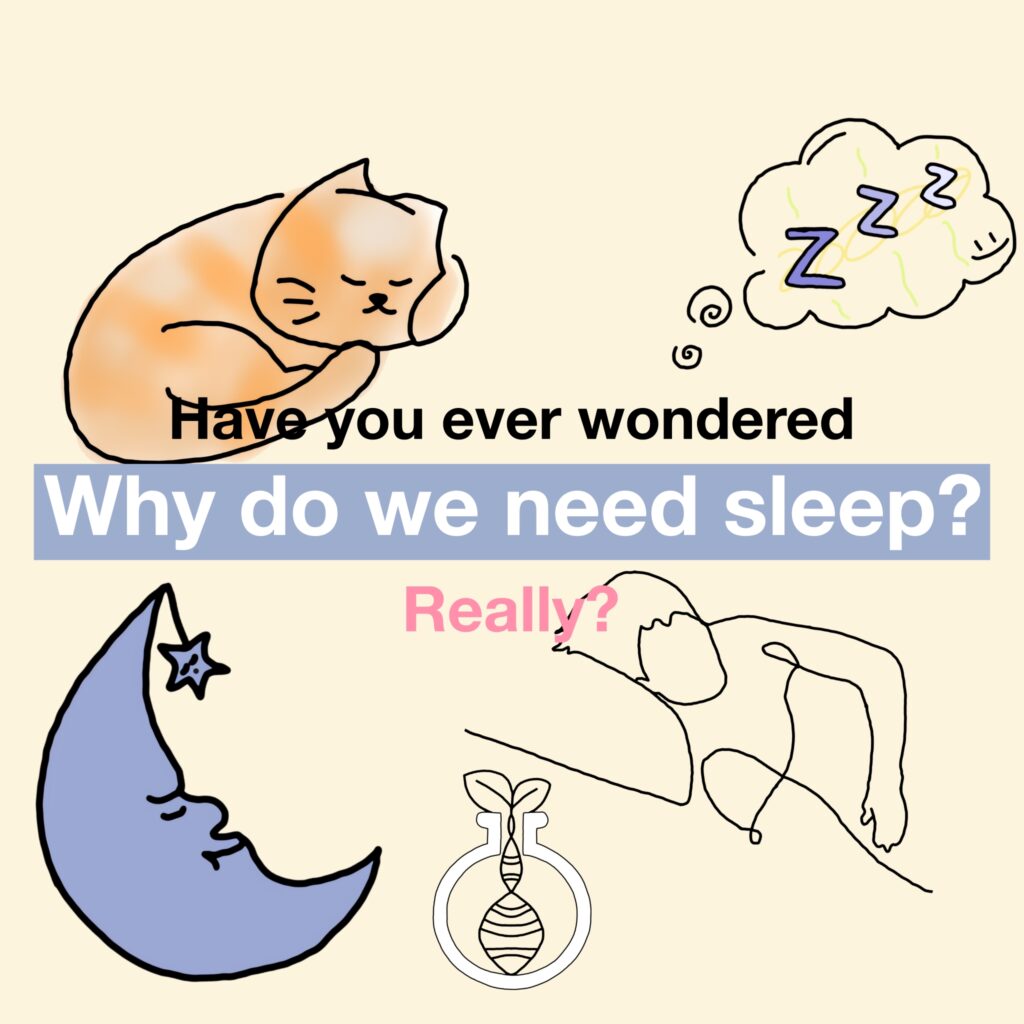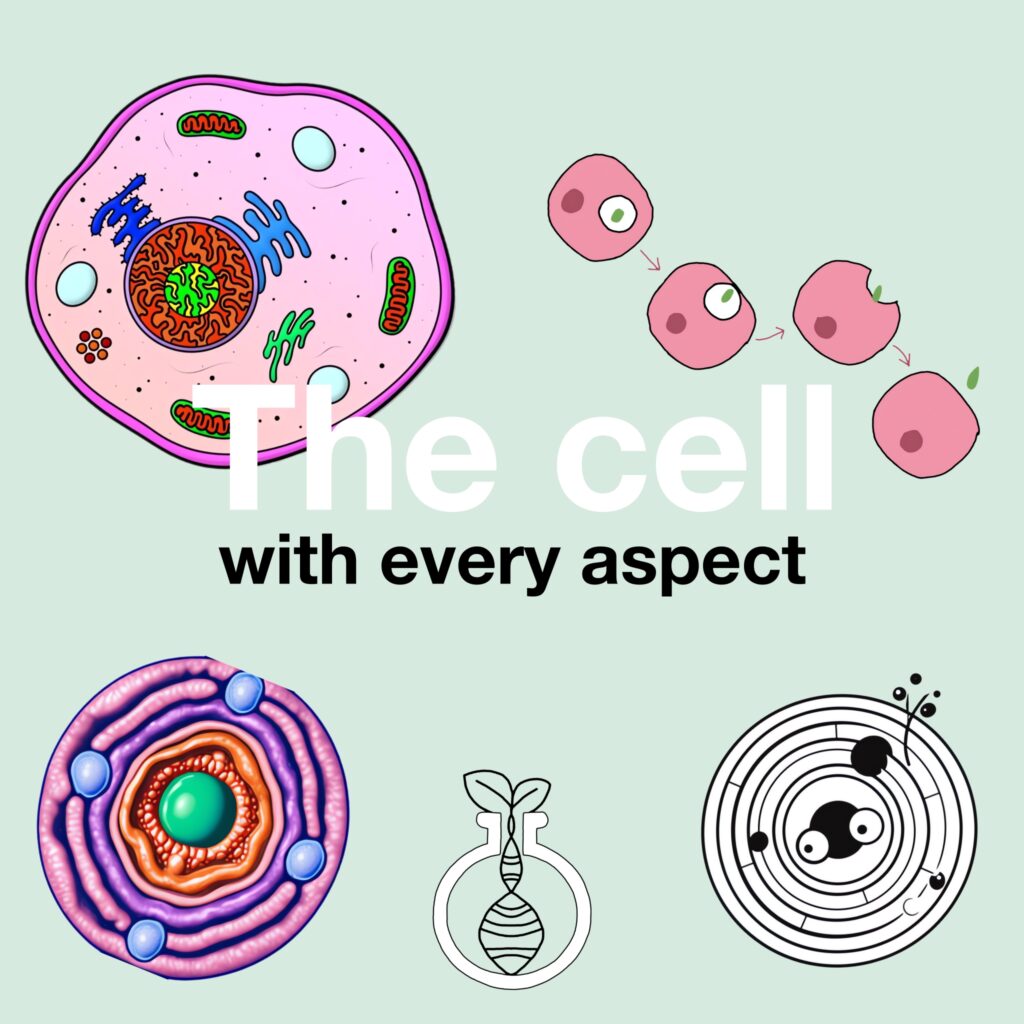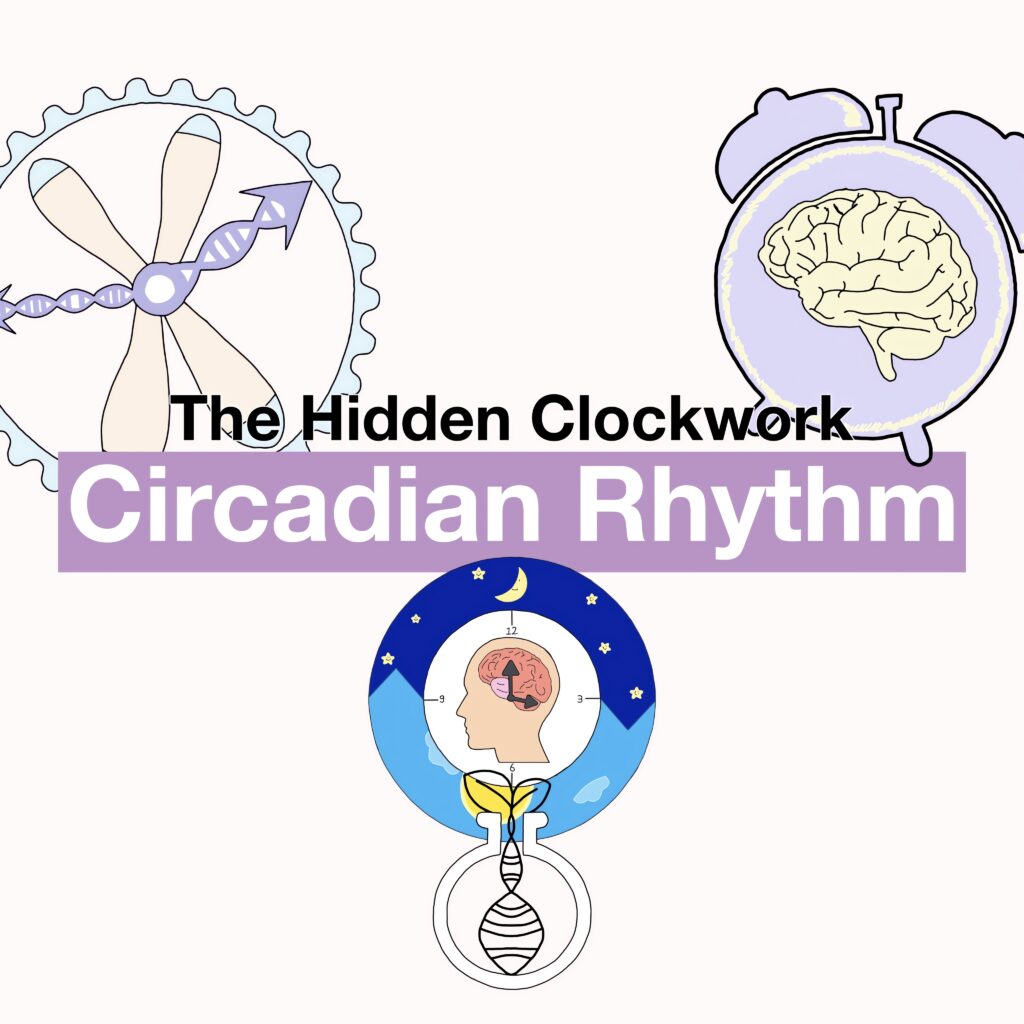Have you ever wondered why we need sleep? It’s more than just a way to recharge our batteries. Sleep is a complex biological process that plays a crucial role in our physical and mental health. In this comprehensive guide, we’ll delve into the fascinating world of sleep, exploring why we need it and what happens during the mysterious REM stage.
The Vital Functions of Sleep
Sleep is more than just rest, it is a full-body overhaul
Physical restoration: While we sleep, our bodies engage in essential repairs, replenishing energy, and supercharging the immune system. Picture sleep as your body’s nightly tune-up—a factory reset that ensures you’re ready for the day ahead.
Cognitive powerhouse: Sleep is the unsung hero of memory consolidation, learning, and problem-solving. During sleep, your brain processes information and forms connections, much like a librarian meticulously organizing books for easy access.
Emotional balance: A restful night acts as a natural mood stabilizer, helping to regulate emotions and ward off irritability and stress. It’s like pressing the reset button on your emotional well-being.

The Enigmatic REM Stage: The Brain’s Nighttime Workshop
Let’s dive into the mysterious world of REM sleep, where your brain works its magic.
Dreamscape: REM sleep, a stage marked by rapid eye movements and vivid dreams, is when the brain kicks into high gear. Dreams during REM can be wild, fantastical, or even insightful, offering a unique window into our subconscious. Think of dreams as your brain’s way of processing emotions, solving problems, and making sense of the world.
Brain Development: REM sleep is crucial for brain development, especially in infants and young children. During this stage, the brain is like a gardener, nurturing new connections and promoting growth.
The Importance of Quality Sleep: The Foundation of Well-Being
Your health hinges on one thing—getting enough quality sleep. Here’s why it matters.
Let’s talk about something that doesn’t get the attention it deserves: quality sleep. We all know how it feels to wake up groggy, reaching for that extra cup of coffee just to get through the day. But it’s more than just feeling tired. Missing out on quality sleep can have a ripple effect throughout your entire body and mind, impacting everything from your mood to your long-term health.
Think of sleep as the foundation of your well-being. Just like a house needs a solid foundation to stand tall, your body and mind need quality sleep to function at their best. When you skimp on sleep, it’s like trying to build that house on shaky ground—eventually, things start to crumble. You might notice that you’re more irritable, struggling to focus, or just not feeling like yourself. That’s because your brain didn’t get the chance to fully recharge.
And it doesn’t stop there. Chronic sleep deprivation can lead to serious health issues, like heart disease, stroke, and diabetes. Your immune system takes a hit too, leaving you more vulnerable to colds, infections, and other illnesses. In short, sleep isn’t just a luxury—it’s a necessity. It’s your body’s nightly opportunity to repair itself, strengthen its defenses, and reset for whatever tomorrow brings.
But here’s the good news: by making sleep a priority, you’re investing in your health in a way that pays off big time. Imagine waking up refreshed, clear-headed, and ready to tackle the day with energy and enthusiasm. That’s the power of quality sleep, and it’s within your reach.

Tips for Improving Sleep: Mastering the Art of Rest
So, how do you actually improve your sleep? Let’s dive into some practical tips that can make a world of difference. Think of this as your personal guide to mastering the art of rest.
First things first: consistency is key. Our bodies thrive on routine, and that includes sleep. Try setting a regular bedtime and wake-up time—even on weekends. I know, the allure of sleeping in can be strong, but sticking to a schedule helps regulate your internal clock. Over time, you’ll find it easier to fall asleep and wake up feeling refreshed.
Next up, let’s talk about your bedtime routine. Just like winding down after a long day at work, your body needs a signal that it’s time to relax. This could be anything from reading a book to taking a warm bath or practicing gentle yoga. The idea is to create a peaceful transition from your busy day to a restful night.
Now, let’s tackle the technology. We’re all guilty of scrolling through our phones or watching TV before bed, but the blue light from screens can really mess with your sleep. It tricks your brain into thinking it’s still daytime, making it harder to fall asleep. Try unplugging at least an hour before bed. Instead, opt for something calming like reading or listening to soft music.
Your sleep environment matters too. Your bedroom should be your sanctuary—a place where relaxation comes naturally. Make sure it’s dark, quiet, and cool. If noise is an issue, consider earplugs or a white noise machine. And if light creeps in, blackout curtains or a sleep mask can work wonders. The goal is to create a space that invites sleep, where your body knows it’s time to rest the moment you lie down.
Caffeine and alcohol—let’s be real, they’re not your friends when it comes to sleep. While that evening coffee or nightcap might seem harmless, they can actually disrupt your sleep cycle. Caffeine can linger in your system for hours, making it harder to drift off. And while alcohol might help you fall asleep initially, it can interfere with the quality of your sleep later in the night. So, try to limit these, especially in the hours leading up to bedtime.
Finally, let’s not forget about stress and anxiety—they can be sleep’s worst enemies. If your mind races the moment your head hits the pillow, it’s time to incorporate some relaxation techniques into your routine. Deep breathing exercises, meditation, or even journaling can help calm your mind and prepare it for sleep. It’s about giving yourself permission to let go of the day’s worries and drift into a peaceful slumber.
When you prioritize sleep, you’re investing in a healthier, happier you.

Conclusion: The Power of Sleep for a Healthier Life
Sleep isn’t just a break from the day; it’s a vital biological process essential for your physical and mental health. By understanding and prioritizing quality sleep, you can unlock better health and greater happiness. So, the next time you drift off, remember the incredible work your body and brain are doing to keep you at your best.
We recommend you to read our other articles on Sleep Stages & Circadian Rhythm!


My name is Ali Emre Cabadak, a dedicated biology enthusiast currently pursuing my studies at Marmara University, where I am majoring in Bioengineering. As a passionate advocate for scientific discovery and innovation, I am the founder of Biologyto. My goal is to bring the wonders of biology closer to everyone and inspire a new generation of thinkers and innovators. Through Biologyto, I aim to write scientific articles that delve into the fascinating world of biology, sharing insights and discoveries that inspire curiosity and innovation.





